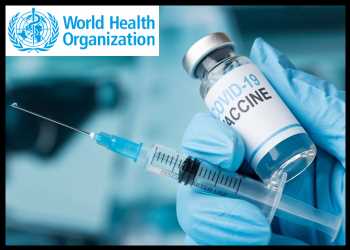The World Health Organization has recommended that the current Covid-19 vaccine antigen composition, specifically the monovalent XBB.1.5 vaccines, may be continued across different platforms against currently circulating SARS-CoV-2 variants.
WHO’s Technical Advisory Group on COVID-19 Vaccine Composition, or TAG-CO-VAC, issued the recommendation after making a thorough evaluation of the current virus evolution and the demonstrated immune responses by the vaccines against circulating variants.
TAG-CO-VAC is an independent and multidisciplinary group of experts. It meets regularly to assess the implications of the evolving virus variants for Covid-19 vaccine antigen composition and advise its parent body on whether changes are needed to the antigen composition of future vaccines for immunization.
In its last meeting in May, the TAG-CO-VAC recommended the use of a monovalent XBB.1 descendent lineage, such as XBB.1.5, as the vaccine antigen. WHO noted that several manufacturers using mRNA and protein-based and viral vector vaccine platforms have updated Covid-19 vaccine antigen composition to monovalent XBB.1.5 formulations which have been approved for use by regulatory authorities.
The latest meeting of TAG-CO-VAC last week reviewed the genetic and antigenic evolution of SARS-CoV-2, the performance of currently approved vaccines against its circulating variants, and the implications for Covid vaccine antigen composition. The twice-yearly evidence review by the TAG-CO-VAC is based on the need for continued monitoring of the evolution of the deadly virus and the kinetics of vaccine-derived immunity.
“Other formulations and/or platforms that achieve robust neutralizing antibody responses against currently circulating variants, including XBB- and BA.2.86 descendent lineages, can also be considered,” the UN health agency said in a statement. In accordance with WHO SAGE policy, vaccination programs can continue to use any of the WHO emergency-use listed or prequalified Covid vaccines.
The WHO Technical Advisory Group called for strengthened epidemiological and virological surveillance to determine if emerging variants are antigenically distinct and able to displace circulating variants.
The panel also recommended clinical evaluation of new vaccine antigens, particularly those emerging from XBB and BA.2.86 descendant lineages.
It also encouraged the further development of vaccines that may improve protection against infection and reduce transmission of the virus.
As the pandemic approaches its fourth anniversary, index virus-based vaccines across different platforms continue to provide high levels of protection against severe disease caused by all variants of SARS-CoV-2, including Omicron 2. However, the emerging variants of the virus are posing challenges to the public health systems in many countries, including ensuring the efficiency of vaccines to provide protection against infection.
Source: Read Full Article

